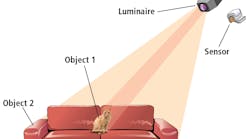In other news, Aixtron announced the introduction of its largest MOCVD reactor to date, the CRIUS II-L, which accommodates 16 x 4-in wafers or up to 69 x 2-in wafers.
Suzhou training center
China’s expansion into solid-state lighting in recent years has led to tremendous demand for MOCVD reactors. In fact, a recent report from Displaybank expects China to be the world’s largest owner of MOCVD tools in 2012. The new center will enable the region to address its shortage of professionally trained personnel such as MOCVD operators and maintenance engineers.
The signing ceremony took place on June 22, 2011 in Suzhou. During the ceremony (see photo), Wolfgang Breme, CFO of Aixtron said: “We chose the Suzhou region due to its well established infrastructure – it is home to many already successful big enterprises and industries. And we chose SINANO because we believe that they are the best partner for this prestigious project.”
MOCVD reactor roll-out
Rainer Beccard, vice president of marketing at Aixtron, described the company’s new CRIUS II-L system as “the largest-capacity manufacturing-proven MOCVD reactor available in the world today, allowing a fast reduction in LED chip cost.”
As with previous generations, the CRIUS II-L reactor is based on the company's Close Coupled Showerhead (CCS) concept, and is designed for straight-forward process tuning and seamless process transfer, said Aixtron.
Beccard also said: “Reduction of manufacturing cost is a key issue in the LED industry. After having analyzed MOCVD-related manufacturing cost, it was obvious that the reactor capacity remains the key parameter with the strongest influence on operating cost."
Aixtron’s single-chamber reactor is indeed larger, on a per-chamber basis, than the Maxbright MOCVD tool recently introduced earlier this year by Aixtron’s rival Veeco. The new Aixtron reactor accommodates 16 x 4-in or 69 x 2-in wafers, while the Veeco machine can process 14 x 4-in or 54 x 2-in wafers.
However, the Maxbright system is a cluster tool designed to have either a two- or four-reactor configuration, so the system’s maximum capacity is 56 x 4-in or 216 x 2-in wafers.






